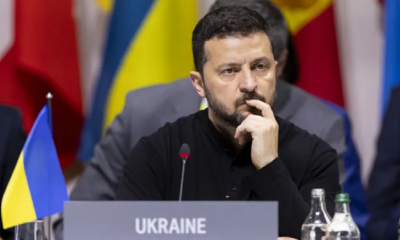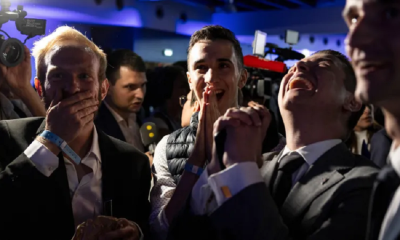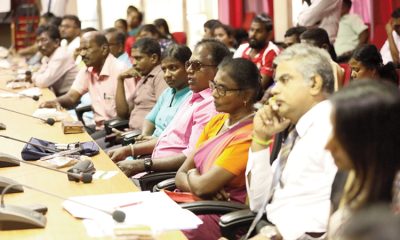Foreign News
German cabinet tries to solve ‘no-debt’ crisis after court outlaws budget
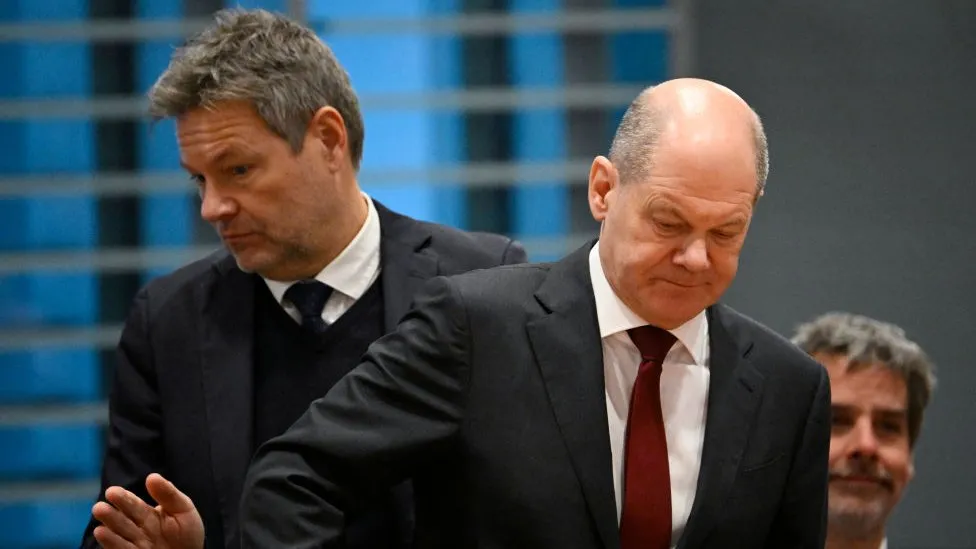
You know it’s a crisis when Germany’s Green vice chancellor cancels attending a climate summit.
Robert Habeck, who’s also economy minister, was supposed to be at the COP28 summit this week in Dubai. Instead, he is in Berlin, wrangling with coalition partners over an emergency agreement for next year’s budget. The crisis exploded on 15 November, when Germany’s constitutional court declared that the government’s budget was illegal for breaking German laws against taking on new debt.
That left a hole of tens of billions of euros.
Now the government has just a few days to come up with a solution, if it wants to pass the 2024 national budget before 1 January without emergency sittings.
On Wednesday (06) Germany’s cabinet meets for the last time this year. A revised budget would have to be put to parliament in next week’s final sessions before Christmas, so ministers should agree this week on how to balance next year’s budget, while sticking to the law.
This is not so much a debt crisis, as an anti-debt crisis. A German law, knowns as the “debt brake“, limits the amount of new borrowing the government is allowed to take on.
The law is enshrined in the constitution since Chancellor Angela Merkel introduced it in 2009 and is a matter of faith for conservatives, who brought the case to the courts.
So it was a coup for the conservative opposition when three weeks ago judges ruled that Olaf Scholz’s left-leaning government was breaking this law.
Balancing Germany’s budget is a feature of German politics, and is known as the schwarze Null, or black zero. It limits a government’s budget deficit to 0.35% of economic output.
Exceptions are allowed in national emergencies, such as the Covid pandemic. The government had planned to use emergency debt left over from the pandemic, to spend on Germany’s shift to green energy instead. Germany’s constitutional court has declared this wheeze illegal.
That leaves an estimated shortfall of €60bn (£51bn; $65bn) for 2023, and €17bn for 2024.
For the current year the government has decided to get round the “debt brake” by declaring 2023 an emergency year, because of the energy crisis sparked by Russia’s invasion of Ukraine, although this may also be challenged in the courts.
But so far, it’s not clear what Mr Scholz is proposing for 2024.
A much-anticipated parliamentary speech by the German chancellor last week did nothing to clarify that. His main message was: Trust me, we have a plan. He also repeated his mantra in German-accented English that “you’ll never walk alone”.
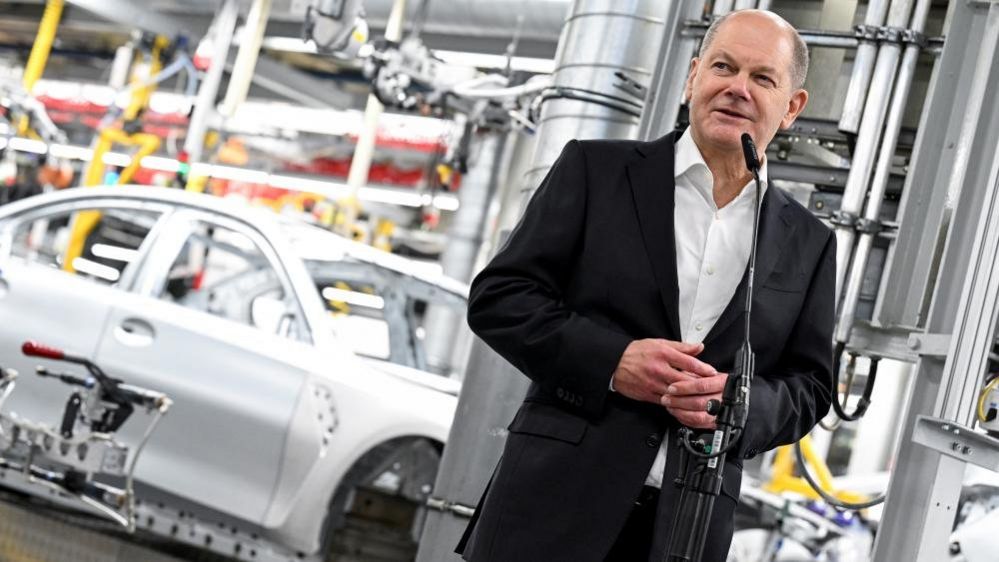
Behind the scenes the three coalition parties have spent the last few days in late-night meetings scrambling to reach an agreement. German commentators can only guess at who is negotiating what, based on which government building has the lights on late at night.
Broadly speaking the only solutions are tax rises, spending cuts or more debt. But these are three very different parties, with conflicting views over borrowing and spending.
The business-friendly small-state liberal FDP, which runs the finance ministry and holds the purse strings, is ideologically opposed to higher taxes and obsessed with keeping the “debt brake”.
Chancellor Scholz’s centre-left SPD meanwhile refuses to roll back a promised increase on social spending, and the Greens are determined to boost investment in Germany’s transition to renewables.
An uncomfortable coalition at the best of times, and these are not the best of times.
Until now the cracks have been papered over by throwing money at causes important for each party.
But all three are doing badly in the polls and have been punished in recent regional elections, making party members unruly and party leaders less open to compromise. The main reason that a compromise looks possible is that poor poll numbers mean there’s no appetite within the government for fresh elections.
Green ambitions to soften the “debt brake” will be difficult to agree in parliament because this needs a two-thirds majority.
Opposition conservatives smell blood, so are in no mood to compromise, and even liberal coalition partners may not agree. But Robert Habeck is rumoured to be planning to get round borrowing rules by arguing for an exemption for crucial future infrastructure.
Either way, the coalition may still find a way to spend money on what’s important to each party, just less of it.
(BBC)
Foreign News
Iraq sandstorm leaves many with breathing problems

More than a thousand people have been left with respiratory problems after a sandstorm swept across Iraq’s central and southern parts of the country, health officials said.
One official in Muthanna province reported to the AFP news agency at least 700 cases of what they said was suffocation.
Footage shared online showed areas cloaked in a thick orange haze, with local media reporting power cuts and the suspension of flights in a number of regions.
Dust storms are common in Iraq, but some experts believe they are becoming more frequent due to climate change.
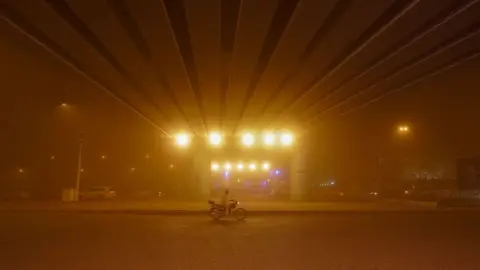
Pedestrians and police wore face masks to protect themselves from the dust and paramedics were on site to assist people with difficulty breathing, according to AFP.
Hospitals in Muthanna province in southern Iraq received at least “700 cases of suffocation”, a local health official said.
More than 250 people were taken to hospital in Najaf province, and at least 322 patients including children were sent to hospitals in Diwaniyah province.
A further 530 people reported breathing issues in Dhi Qar and Basra provinces.
The sandstorm blanketed Iraq’s southern provinces in an orange cloud that reduced visibility to less than one kilometre (0.62 mile).
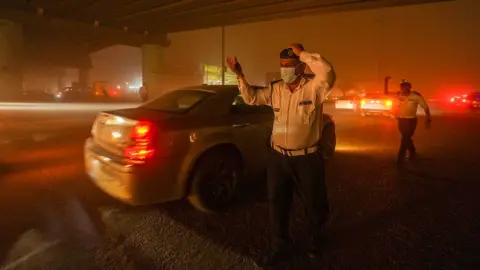
The authorities were forced to shut down airports in the provinces of Najaf and Basra.
Conditions are expected to gradually improve by Tuesday morning, according to local weather services.
Iraq is listed by the UN as one of the five countries most vulnerable to climate change as it encounters regular sandstorms, sweltering heat and water scarcity.
A severe sandstorm in 2022 left one person dead and more than 5,000 needing treatment for respiratory illnesses.
Iraq will be experiencing more “dust days” in the future, according to its environment ministry.
[BBC]
Foreign News
Indian billionaire jeweller Mehul Choksi arrested in Belgium
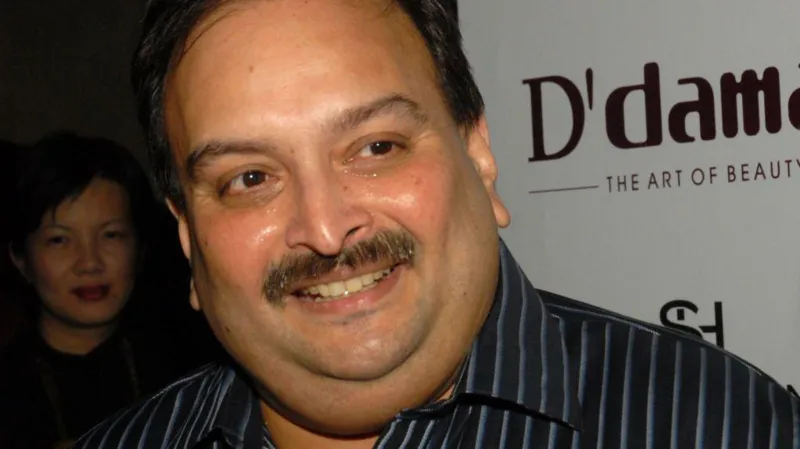
Indian businessman Mehul Choksi has been arrested in Belgium following India’s request for his extradition.
Choksi, who left India in 2018, was arrested on Saturday, his lawyer Vijay Aggarwal told the BBC on Monday.
The diamond merchant is wanted by India for allegedly defrauding one of the country’s largest banks of nearly $1.8bn (£1.3bn).
Choksi has not commented publicly on the case, but his lawyer said they would appeal against his detention and also oppose his extradition to India.
“These are the obvious grounds on which we will argue the case, that he is not a flight risk and secondly, that he is extremely sick. He is undergoing cancer treatment,” Mr Agarwal said. He added that they would “contest the extradition on grounds that there isn’t enough evidence against him and the extradition request is politically motivated and the trial in India may not be fair”.
The BBC has reached out to India’s foreign ministry and financial crimes agency – the Enforcement Directorate (ED) – for comment.
According to a Times of India report, Choksi was arrested on the basis of two non-bailable warrants issued by an Indian court in 2018 and 2021 – although it’s not clear why the action came now.
Mehul Choksi and his nephew, Nirav Modi, are wanted by Indian authorities in connection with a $1.8bn fraud case at Punjab National Bank (PNB).
Niray Modi, who’s also been living abroad since 2018, is lodged in a prison in London and is awaiting extradition to India.
Both were high-profile diamond traders. Modi’s jewellery was worn by several Hollywood celebrities such as Naomi Watts and Kate Winslet. One of the biggest Bollywood stars, Priyanka Chopra, was his company’s brand ambassador. Choksi, meanwhile, was the owner of Gitanjali Gems, an Indian jewellery retailer which once had about 4,000 stores across India.
The ED has accused Choksi and Modi of colluding with some employees of PNB’s Brady House branch in Mumbai city to get fraudulent advances for payments to overseas suppliers of jewels.
These funds were then allegedly diverted and laundered.
Choksi and Modi have denied the allegations against them.
After leaving India, Choksi reportedly travelled to the US and later to Antigua – where he has citizenship. In 2021, he was reportedly arrested in Dominica and deported back to Antigua.
Hariprasad SV, a Bengaluru-based entrepreneur who had in 2016 alerted authorities about the alleged scam at PNB, said Choksi’s arrest was “great news”. “Apart from bringing him back, the most important thing is to get back all those billions of dollars he looted from India,” he told ANI news agency.
[BBC]
Foreign News
Trump exempts smartphones and computers from new tariffs
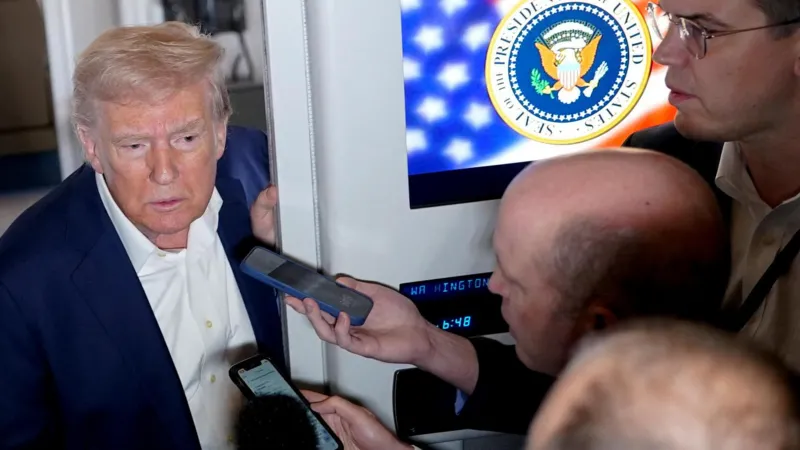
US President Donald Trump’s administration has exempted smartphones, computers and some other electronic devices from “reciprocal” tariffs, including the 125% levies imposed on Chinese imports.
US Customs and Border Patrol published a notice late on Friday explaining the goods would be excluded from Trump’s 10% global tariff on most countries and the much larger Chinese import tax.
The move comes after concerns from US tech companies that the price of gadgets could skyrocket, as many of them are made in China.
This is the first significant reprieve of any kind in Trump’s tariffs on China, with one trade analyst describing it as a “game-changer scenario”.
[BBC]
-

 News4 days ago
News4 days agoSuspect injured in police shooting hospitalised
-

 Features5 days ago
Features5 days agoRobbers and Wreckers
-

 Features7 days ago
Features7 days agoSri Lanka’s Foreign Policy amid Geopolitical Transformations: 1990-2024 – Part III
-

 Midweek Review7 days ago
Midweek Review7 days agoInequality is killing the Middle Class
-

 Business4 days ago
Business4 days agoSanjiv Hulugalle appointed CEO and General Manager of Cinnamon Life at City of Dreams Sri Lanka
-

 Business6 days ago
Business6 days agoNational Anti-Corruption Action Plan launched with focus on economic recovery
-

 Features3 days ago
Features3 days agoLiberation Day tariffs chaos could cause permanent damage to US economy, amid global tensions
-

 News7 days ago
News7 days agoIChemC signs MoU with KIIT, India


